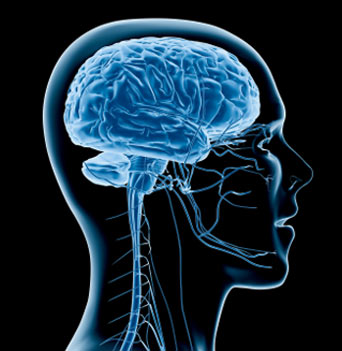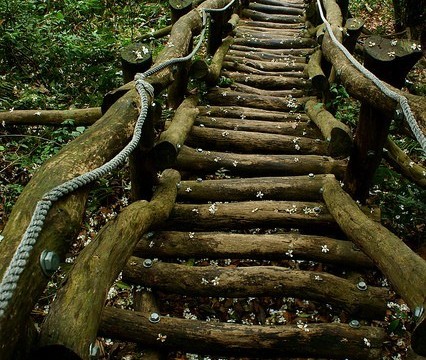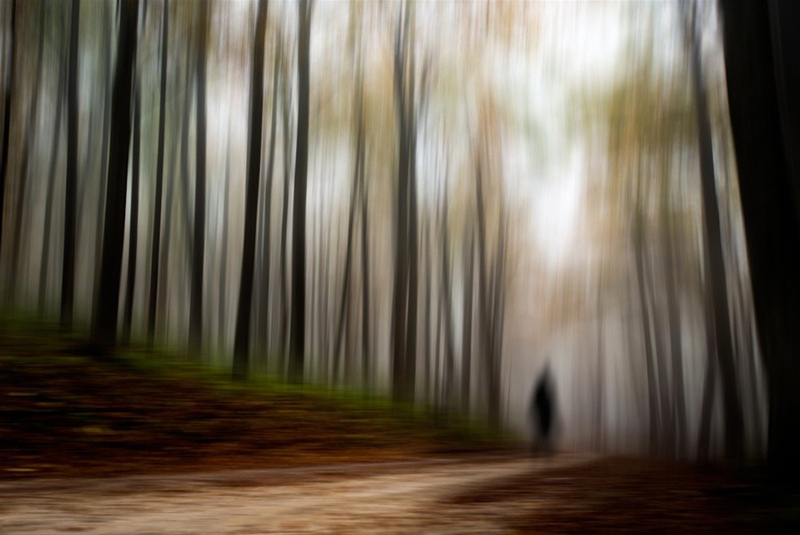There comes a point where meditation seems superfluous. Almost against my will (since I was strongly thinking about other things on the sitting beside the full, fast and clear creek today) the mind/brain went into meditation.
 The mind-as-thought, and the Mind-beyond-thought are completely different and distinct phenomena; the former must end for the latter to be. When the ‘I,’ which is will, lets go, thought lets go. Then the Mind, which is beyond thought and even the brain, is.
The mind-as-thought, and the Mind-beyond-thought are completely different and distinct phenomena; the former must end for the latter to be. When the ‘I,’ which is will, lets go, thought lets go. Then the Mind, which is beyond thought and even the brain, is.
A gray squirrel scurries down the tree next to me. I turn when it is at eye level, and it voices displeasure or distress. As soon as I reach the top of the bank, a wily jay swoops down and nabs the almonds I left for the squirrel. Since I usually leave a couple, perhaps the squirrel knew the jay would beat him to them, and was coming down to claim them before I left. Animals are a lot smarter than people think.
Can one lose everything in the mind-as-thought and still function in the world? I would put the question the other way—can one hang onto the things of thought (beliefs, opinions, images and ideas) and function as a human being in this world?
Our brains our overloaded with stuff, most of it junk—useless memory and accreted emotions clogging up our minds, hearts and synapses. Few people know how to clean out the worthless files and see afresh, much less stop the entire mechanism of memory and thought and stand naked before the mystery of life and the universe.
Instead the solution being proposed by scientists and supposed sages alike is more memory, exercising one’s brain through various games, drills and tests. Or, even more far-fetched but not very far off, merging the brain with the computer, so we become unlimited memory machines, as if memory is what makes us what we are. Hell, knowledge doesn’t even make us what we are, much less make for wisdom.
I learned the distinction between useful memory and knowledge, and unnecessary memory and information when I was a young man and would occasionally backpack alone. The first day hiking would bring non-stop chatter without any rational thread—the ‘monkey mind’ on steroids. The first night would bring a storm of emotions, most of them painful, making sleep difficult.
But the morning would bring the stillness and peace that comes with purgation of the mind and heart. Fear, loneliness and suffering faded away like a morning mist, and the beauty of the High Sierra would strike me with as much newness and profundity as it did John Muir.
As I hiked, the quietness of the mind/brain would deepen, until by the end of the day I could literally, and ecstatically, not hold a thought in my head. I didn’t forget how to do what I needed to do—read a map, make a fire, set up camp, and make a meal—but that was it. There was nothing else but a ‘state’ of seeing and insight that would last for however long I stayed in the mountains. That’s the deepest reason why people throughout the ages in every land have gone to the mountains.
At times, in the silence of the mind, beauty would become so intense that I experienced what the Greeks called ‘aesthetic stasis,’ a phenomenon in which the body became immobile for anywhere from a few seconds to a few  minutes. It sounds dangerous, but there was awareness of danger. I knew at an emotional level that the mountains could kill me as easily and indifferently as lightening striking a tree. But that fact only heightened the mystery and ecstasy of being alone in such wildness and splendor.
minutes. It sounds dangerous, but there was awareness of danger. I knew at an emotional level that the mountains could kill me as easily and indifferently as lightening striking a tree. But that fact only heightened the mystery and ecstasy of being alone in such wildness and splendor.
There have been prototypes of human beings throughout the ages, but they were put on pedestals and worshipped as gods (and in Jesus’ case, as God). Can human beings grow into gods and goddesses? Perhaps that’s what they are, but it’s hard to enough to be a human being, so let’s just concern ourselves with that for the time being.
The difference in our age is that all the old religious hierarchies, authorities and traditions have eroded away, collapsed under their own dead weight, or become ugly echoes of whatever trueness they once contained (notwithstanding Pope Francis’ charm offensive for the Catholic Church). Therefore there is both the opportunity and the imperative to awaken the prototypical human being within us as ordinary humans, so that the human being is no longer the rare exception but the rule.
It isn’t easy. Indeed, it may be harder than it’s ever been, for humankind appears further away than ever from the perennial goal, because at least in America and the West, the walking dead rule at present.
The transmutation of devolving humans into evolving human beings requires a psychological revolution, beginning within oneself. Young children, before they are ruthlessly conditioned (‘socialized,’ to use the euphemism) could much more easily grow into human beings than we adults, who have to “return and become like children.”
Martin LeFevre

